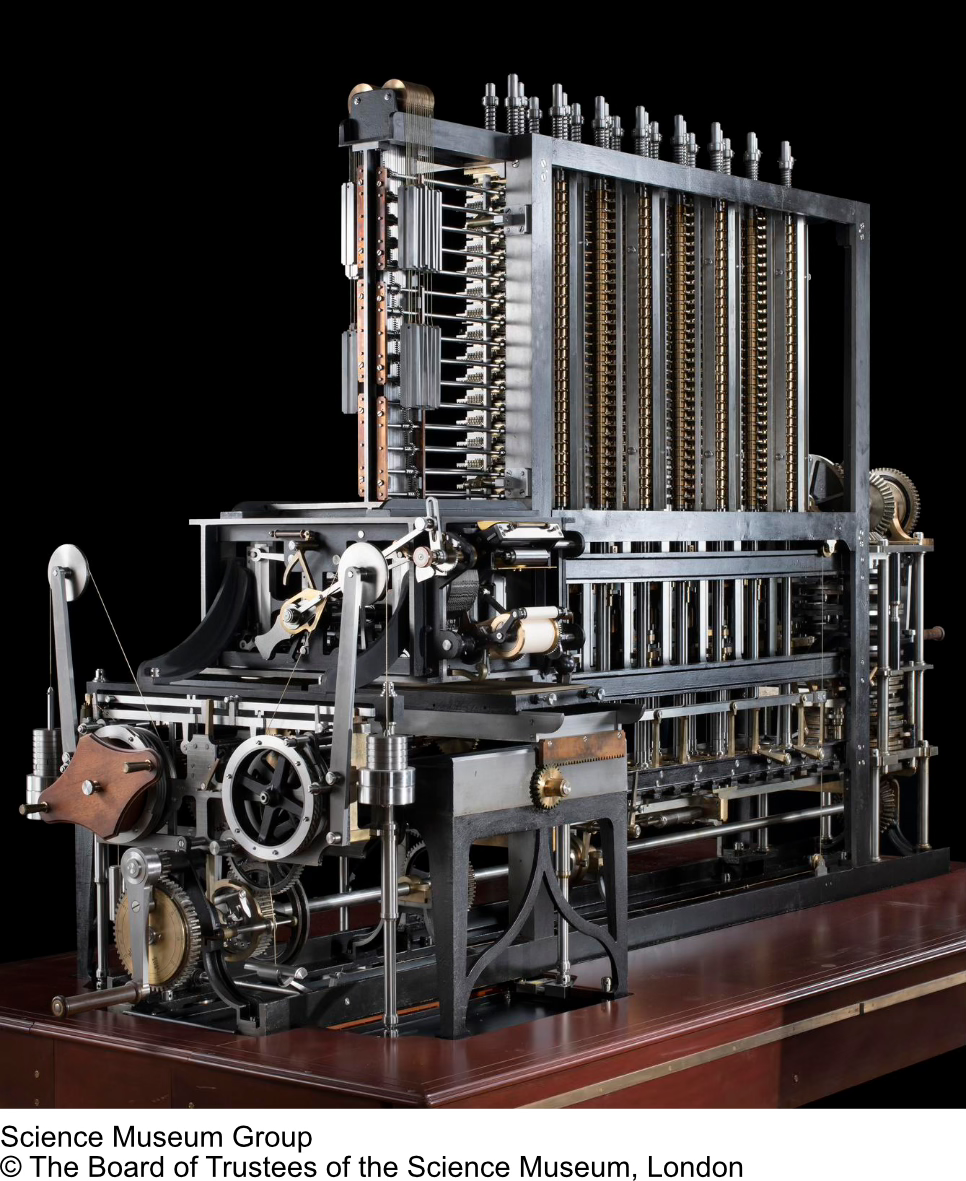What's Charles Babbage got to with 21st Century Entrepreneurialism?
Charles Babbage (1791 – 1871)
A lifetime in information technology means that I have been privileged to be present as the industry evolved from mainframes through mini–computers and then PCs to today’s rich array of programmable devices on which we all depend. Depressing though the reality is, I wrote my first line of code half a century ago and am old enough to remember when punch cards and paper tape were seen as leading edge as the only means of inputting anything into a computer and visual displays were a crazy concept only found in science fiction novels!
Although all of the advances in computing seem to have come in something of a rush in the last forty or fifty years creating vast wealth, employment, and utility around the globe, the industry has its roots back in the 19th century.
Charles Babbage was born into a wealthy London family of bankers and merchants on Boxing Day, 1791. He displayed an inquiring mind and a passion for mathematics from an early age which led to a distinguished career in science and mathematics.
A polymath and sometime Lucasian Professor of Mathematics at Cambridge, he is best known for his invention of the Difference and Analytical Engines – an early calculator and the first computer.
The Difference Engine calculated and tabulated mathematical functions (specifically polynomials such as x2+ 6x – 9). Today, we take the single–purpose calculator for granted but back in the 19th century, the concept was ground-breaking. However, the much more sophisticated Analytic Engine represented a quantum step (pun intended) into a future we take for granted today. The Analytic Engine was the world’s first general–purpose computer capable of being programmed to carry out arithmetical functions including multiplication and division. The design of the Analytical Engines (Babbage invented two versions) laid the foundations for today’s machines with memory, a processing unit, and inputs and outputs.
Babbage is undisputedly computer hardware’s founding father. But his relevance to today’s world doesn’t stop there. Despite living in a male-dominated, neo-misogynist culture he recruited a female assistant – Ada Lovelace. She was possessed with a genius to match Babbage’s and invented a ‘language’ to turn the Analytical Engine into a useable machine. Ada can justifiably be recognised as computer software’s Mother of Invention.
(By the way, those with an interest in the little-told history of women in technology might enjoy visiting her commemorative plaque on the wall of 12 St James’ Square, London.)
Although some working prototypes of parts of his Engines exist today, Babbage never managed to build fully working versions of any of his designs, nor did he or Ada manage to earn a penny from their pioneering endeavours. It wasn’t until 1991 - 120 years after his death - that engineers at London’s Science Museum unveiled a working Difference Engine No. 2 shown below.
All of which brings us to the title of this piece: “What's Charles Babbage got to with 20th Century Entrepreneurialism?”
The answer to this question lies in a quote from Spanish philosopher - George Santayana who is reputed to have declared that:
“Those who do not study history are destined to repeat it.”
Santayana’s words offer a powerful message of massive relevance to today’s entrepreneurs, not to mention their colleagues, investors and loved ones.
Babbage’s failure to realise his vision was for a host of reasons familiar to latter-day inventors and failed entrepreneurs. They included the anger of exasperated funders and a terminal falling out with his Chief Engineer. All exacerbated by the self-confidence (aka arrogance) that came from his love of science and of intellectual thought for their own sakes.
Towards the end of his life, recognising that attainment of his obsession was beyond his reach, Babbage wrote:
“If unwarned by my example, any man shall undertake and shall succeed in really constructing an engine ... upon different principles or by simpler mechanical means, I have no fear of leaving my reputation in his charge, for he alone will be fully able to appreciate the nature of my efforts and the value of their results.”
Babbage died in 1871 aged eighty, neither rich nor right having dissipated much of his fortune on the vain quest for his Holy Grail of a fully functional programmable computer.
His legacy is a mixture of ambition, an eye-watering plethora of inventions, the designs for a world-changing technology and a stark warning of the need for all entrepreneurs to be wary of the Babbage Curse!
The mission of Beating The Babbage Curse is to arm my readers with ways to identify symptoms of, and apply antidotes to, the Babbage Curse. Whether you are a start-up entrepreneur planning to make the world a better place by disrupting a sector, a scale-up leader with mountains still to climb, or an established business seeking to reinvent itself in the face of threats of disruption, the demons of the Babbage Curse will be waiting to undermine you with one or other of their poisonous myths!
It is obvious that the process of building a game-changing business is fraught with challenges – if it were easy, everyone would succeed. But, surprisingly, many of those challenges aren’t real - they are myths perpetrated by commentators who are either ignorant or motivated by malign intent. Irrespective of their origin, these toxic myths can sap the entrepreneurs’ confidence and even send organisations down dangerous detours.
Normally, curse banishment is a black art practiced by witches and wizards; happily, beating the Babbage Curse doesn’t require eyes of newts, blind–worm's sting or any of the other ingredients called upon by the three witches in Shakespeare’s Macbeth. My far less intimidating approach is to lay out each myth – there are more than two dozen – and then explode each of them by explaining the technique required to counteract their force.
Along the way, I intend to respond to questions from frustrated entrepreneurs (and possibly their colleagues, investors, and loved ones) with answers based on my many experiences good and bad) based on over my 3 decades as an entrepreneur and advisor to entrepreneurs.
Despite his genius, wealth, and powerful connections, Charles Babbage succumbed to the dark and ubiquitous forces which are focused on preventing tomorrow’s wealth creators from realising their world-changing visions.
But he wasn’t a total failure - he made many ground-breaking scientific and technological contributions to knowledge, by hiring Ada Lovelace he proved that computing ability wasn’t a male preserve.
But, sadly, she too failed to capitalise on her ground-breaking innovation although, in her defence she faced many distractions, not least the notoriety of being the only legitimate daughter of the poet Lord Byron, the wife of the Earl of Lovelace, and as an inveterate and massively unsuccessful gambler!
But Babbage was the boss and the Engines were his idea.
He must therefore take responsibility for his total failure to turn any of his many contributions into commercial successes with all of their promised benefits to humanity in which he so passionately believed .
As a result, and with the intention of ensuring that his contributions to science and the human race do not go to waste, I have named the curse in his honour.




